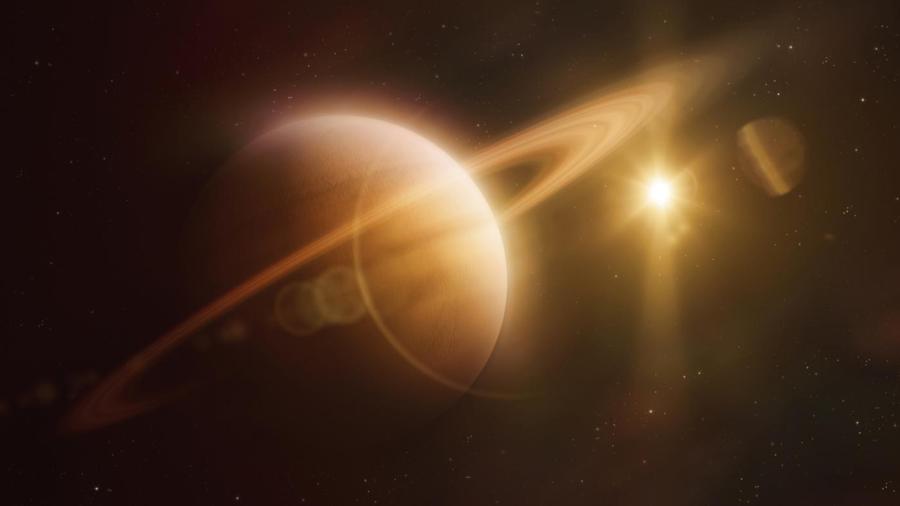What Planets Have Shorter Days Than Earth?

The outer planets Jupiter, Saturn, Uranus and Neptune all have shorter days than Earth. Among the terrestrial planets, Mars has a slightly longer day than Earth at 24 hours 37 minutes. Mercury’s day lasts 59 Earth days, while a day on Venus lasts 243 Earth days.
The outer planets are gas giants. Jupiter’s day lasts about 10 hours. Saturn spins on its axis in 10 hours 40 minutes. A day on Uranus and Neptune lasts 16.8 and 16.2 hours, respectively. Astronomers have different theories as to why the gas giants spin so much faster than smaller planets like Earth.
Most of these theories invoke a principle called the conservation of angular momentum. This means that if most of an object’s mass is concentrated near its axis of rotation, it will rotate faster than a body whose mass is distributed uniformly. An everyday example of this is an ice skater. When the skater extends her arms, she rotates slowly. When the skater holds both arms above her head, she spins much faster.





